As most Beatles fans know, The Quarrymen – who still play today – are a British skiffle/rock and roll group, formed by John Lennon and friends in Liverpool in 1956, which evolved into the Beatles in 1960.
Originally consisting of John and several school friends from Quarry Bank High School, the band went on to play many gigs in the city and were reasonably well known on the local jazz/skiffle scene.
On a warm sunny day on June 22, 1957, The Quarrymen agreed to play at a party on Rosebery Street, organised by Charlie Roberts’ mum Marjorie to mark the 750th anniversary of Liverpool being award City status. It was here Charlie Roberts, armed with a borrowed camera, was able to capture the very first photo of John and his Quarrymen playing live.
Only three photos of the performance remain, and we spoke with Charlie who explained how there were nearly no photos at all.
I was by no means a photographer and borrowed the camera of a neighbour. I’d never taken a photo in my life! A few days after the party my wife took the rolls of film to be developed at Norman’s Chemist round the corner. There was a full roll of photos of The Quarrymen but this was somehow lost in the chemists! Luckily I managed to find the three photos I have from another roll. I imagine if found they’ll be worth a lot of money!
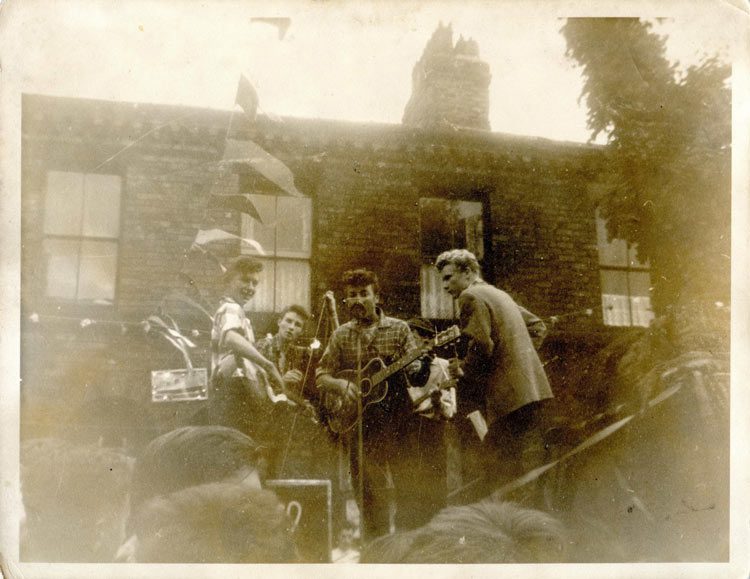
An old photo of The Quarrymen performing in Liverpool, taken by Charlie Roberts.
The band performed on Rosebury Street, L8 on the back of a coal wagon, complete with a mic which had been wired through the window of Charlie’s neighbour’s house at number 76. They played two sets, and during their second performance the loud music attracted crowds from neighbouring streets, including a local ‘gang’ who did not appreciate John ‘flirting’ with their girlfriends.
Charlie explained that this may not have been the case: “John was short sighted so he was probably just squinting, which these lads thought he was winking at their girlfriends! They didn’t like this and to escape any trouble, after finishing their set they ran into my mum’s house.”
Meanwhile, the wagon was unloaded and all the gear was brought into the back of Charlie’s house. Eventually a police officer arrived, who was able to escort the boys to the bus station.
Charlie knew John through his time in Liverpool, and the group of friends would regularly grab a drink in The Rose of Mosely in Mossley Hill before heading to St Barnabas’ Church where the band would rehearse or perform. They’d also spend time in the Old Dutch Café on Smithdown Road- which became something of a home from home and a place to enjoy a coffee and sausage roll after the pubs had closed at 10pm.
Although the pair spoke about many things, mainly music, John never spoke of the tragic death of him mum in 1958 or about moving in with Aunt Mimi.
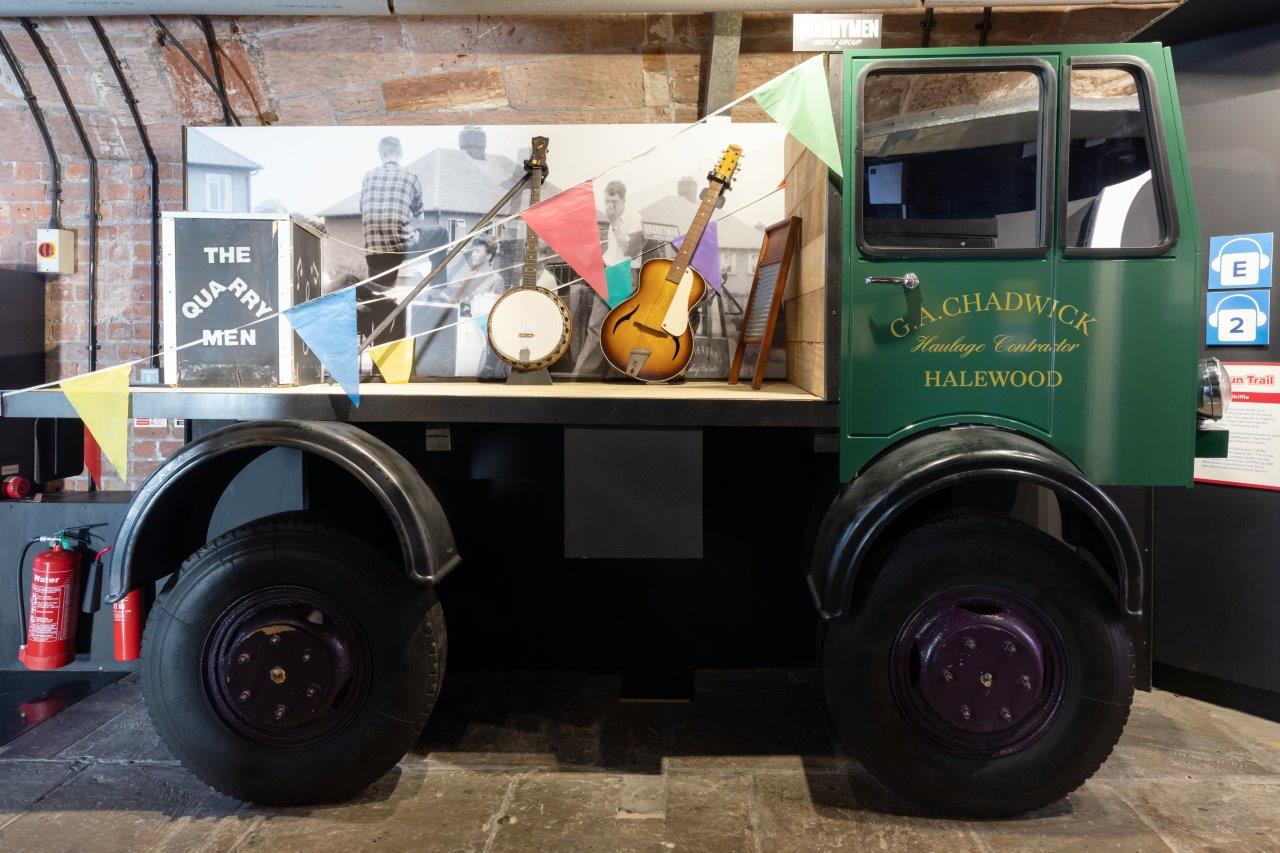
The Quarrymen display at The Beatles Story Museum, Liverpool.
Charlie also knew The Quarrymen were good, but couldn’t expect the worldwide success that The Beatles went on to achieve.
“They were very good so I knew they’d be big in Liverpool. It was amazing to see them become famous worldwide, and the fact they did it in such a short period of time was remarkable.”
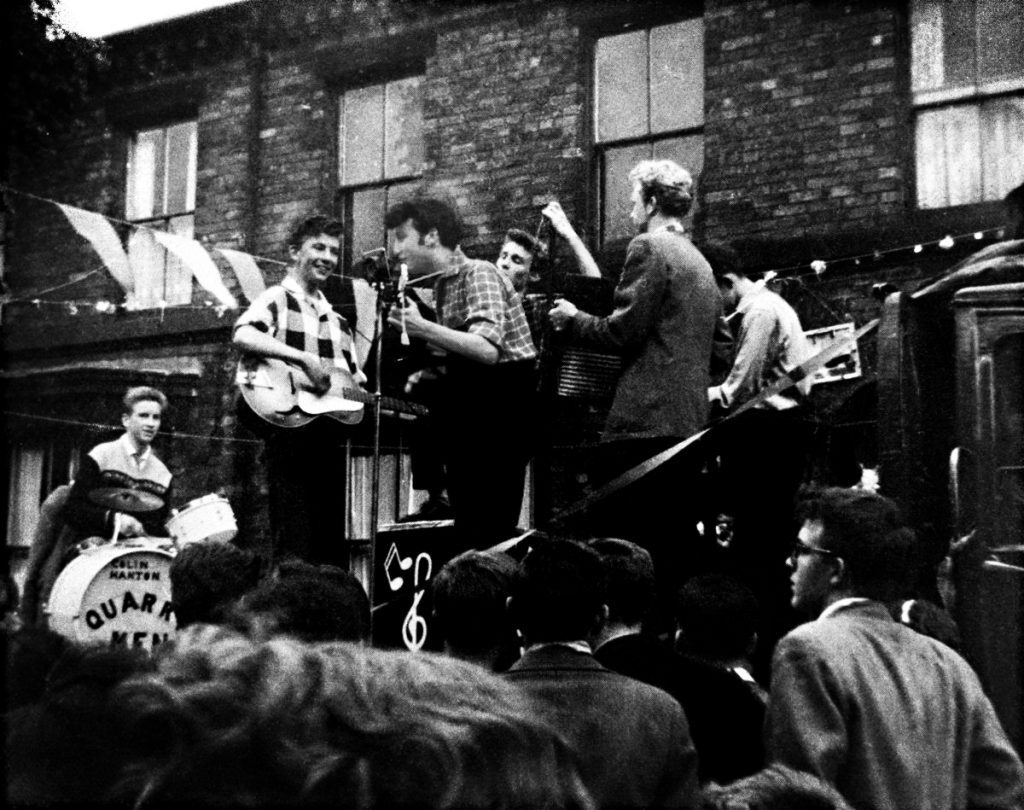
John Lennon performing with The Quarrymen.
Charlie lost touch with The Beatles in 1962/63 but regrets not getting in touch with John.
“It was only after John died that it was said he longed for local mates from years gone by to get in touch with him. I would have done, but I didn’t want people thinking I was ‘cashing in’ on the fact I knew John and we used to knock about together. I think if he were alive today, I’d definitely try and get in touch and send him an email.”
Charlie’s photographs, alongside lots more information about The Quarrymen can be found at our award winning exhibition.
More in this series
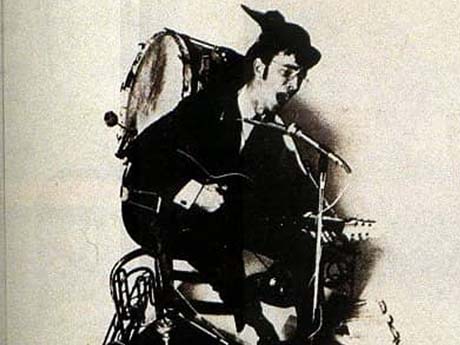
Becoming The Beatles: Alistair Taylor
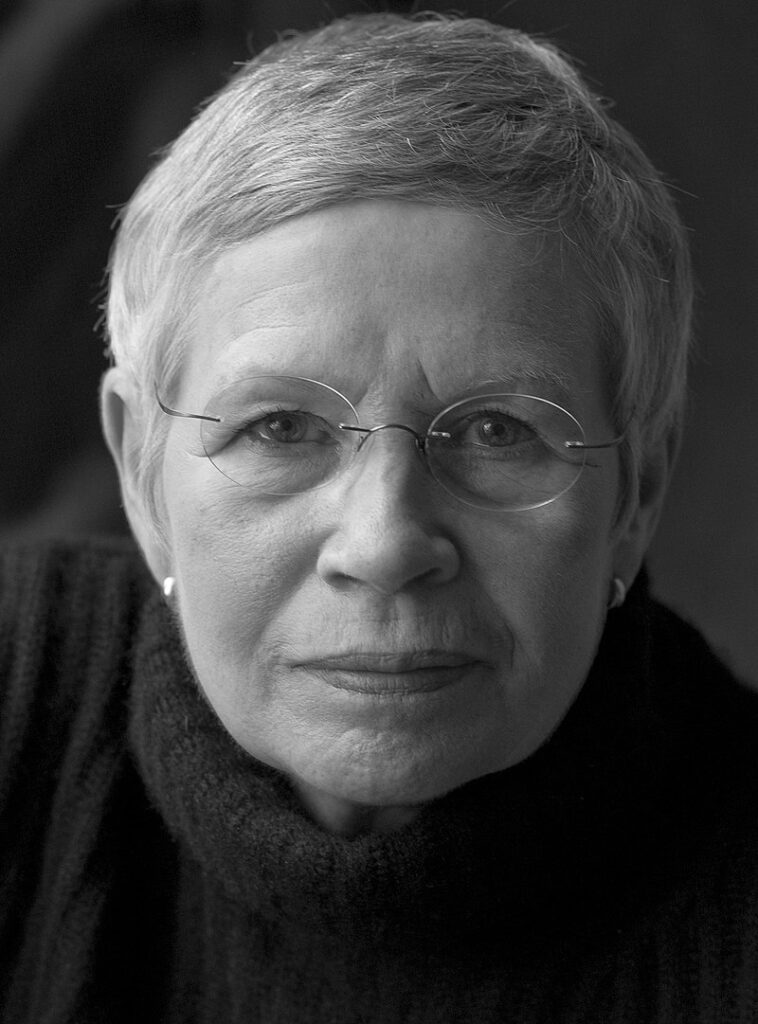
Becoming The Beatles: Astrid Kirchherr
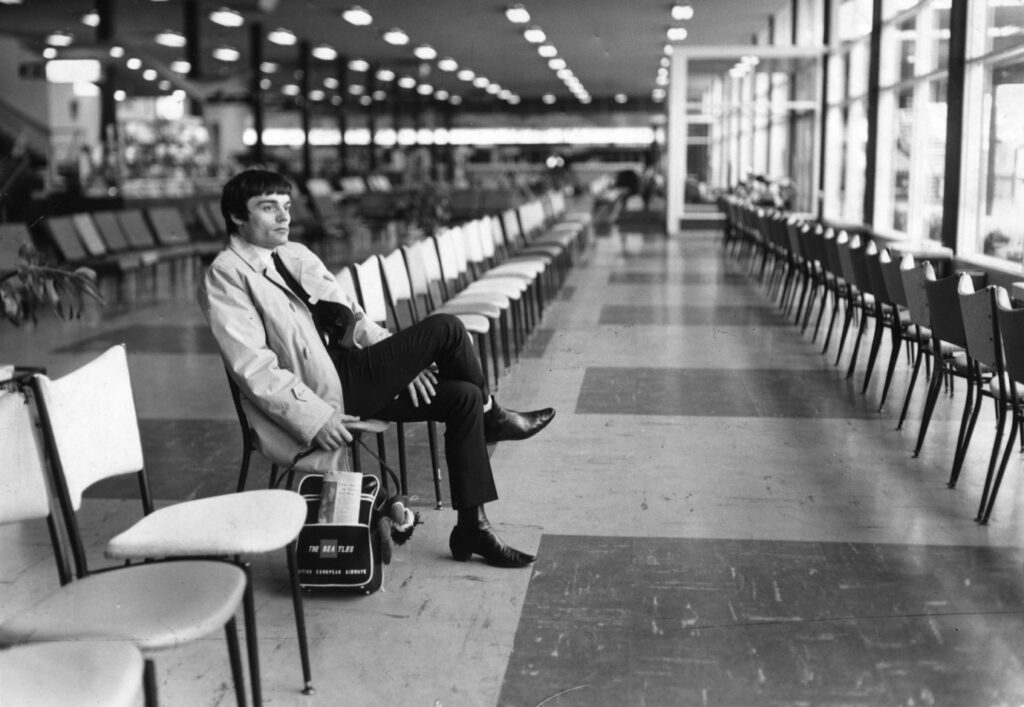
Becoming The Beatles: Jimmie Nicol
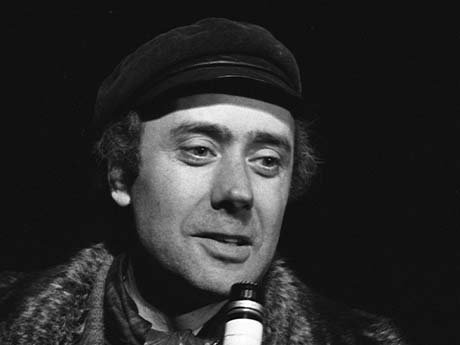
Becoming The Beatles: Victor Spinetti
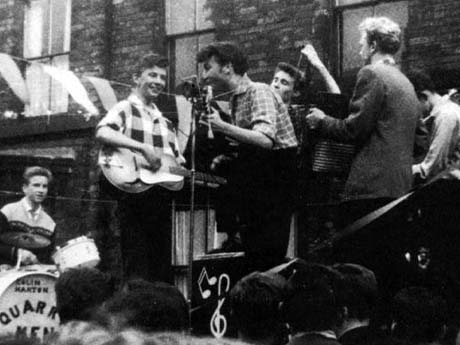
Becoming The Beatles: Charlie Roberts
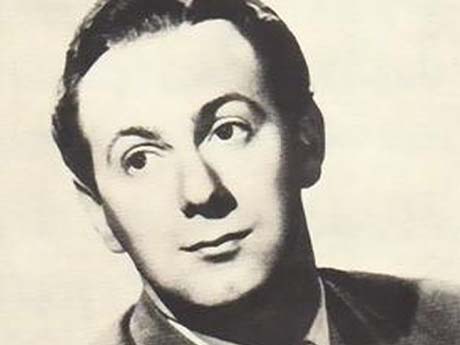
Becoming The Beatles: Dick James
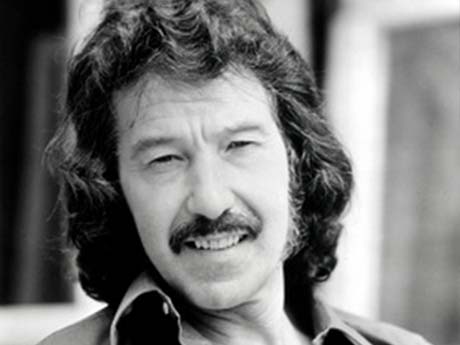
Becoming The Beatles: Norman Smith
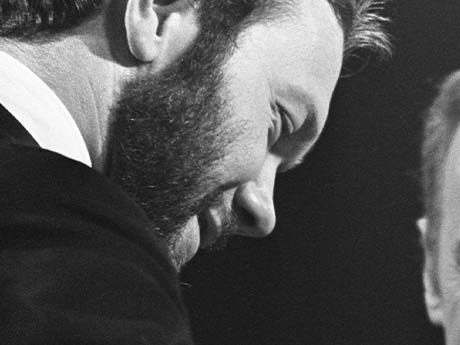
Becoming The Beatles: Pete Brown
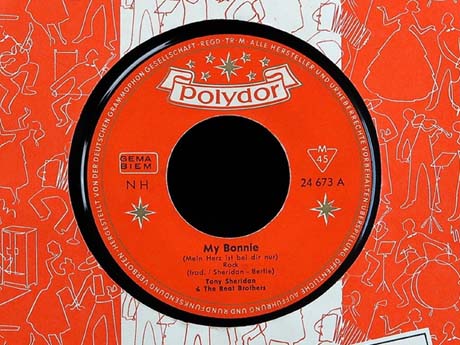
Becoming The Beatles: Raymond Jones
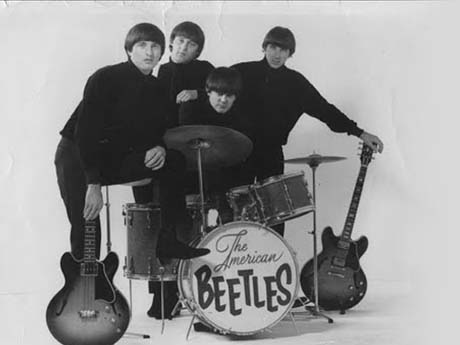
Becoming The Beatles: The Fake Fab Four
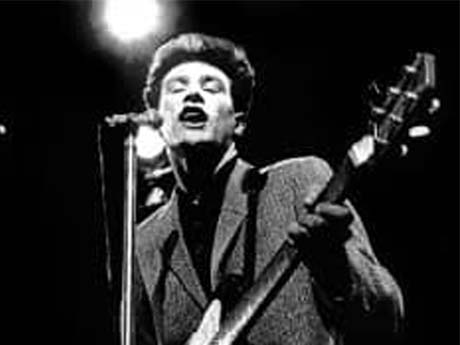
Becoming The Beatles: Tony Sheridan